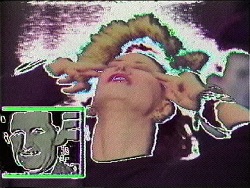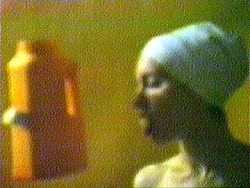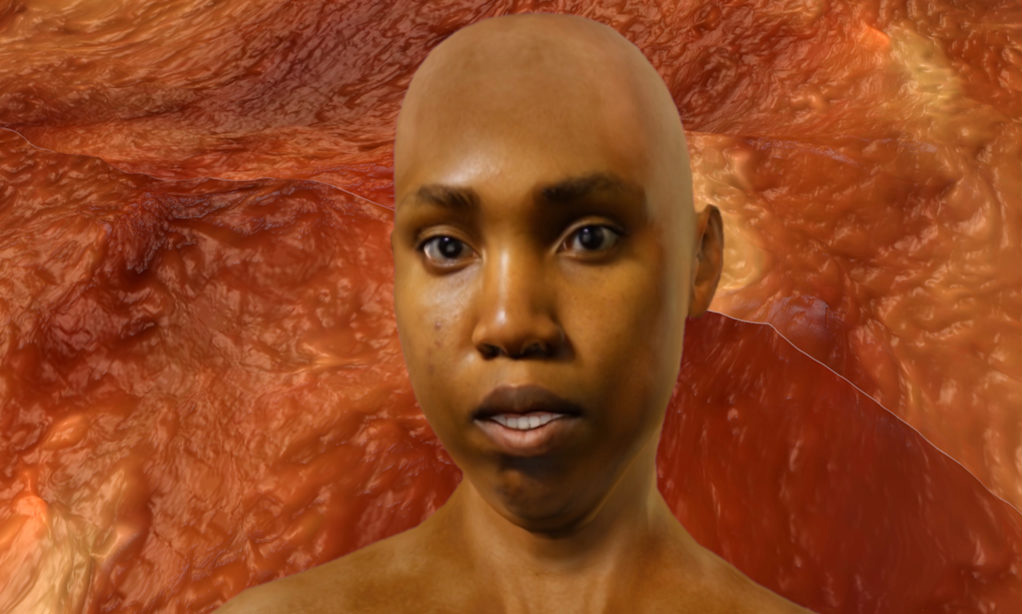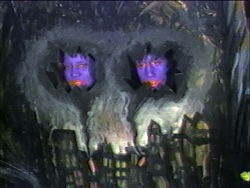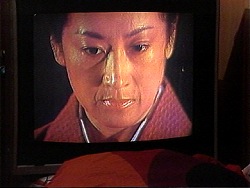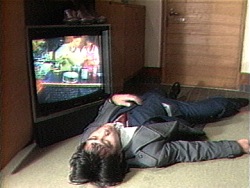Search Results
Search Results
Title Results
Your search returned 805 Titles
Going East on Michigan Avenue from Westland to Downtown Detroit
Mike Kelley
2011, 78:50 min, color, sound, HD video
Going West on Michigan Avenue from Downtown Detroit to Westland
Mike Kelley
2011, 78:28, color, sound, HD video
Good Morning Mr.Orwell is an edited version of Paik's first international satellite "installation," which was held on New Year's Day 1984. Paik's transcultural satellite extravaganzas link different countries, spaces, and times in often chaotic but entertaining collages of art and pop culture,...
A plastic container dangles from a string, a banana protruding from a hole in its side. To the accompaniment of Middle Eastern music, Donegan, her head wrapped in a white turban, catches the swaying banana with her mouth. Moving as if in a trance of erotic delirium, she engulfs the banana, chews...
Grand Mal is a hallucinatory, discordant drama, an extravagant and sinister fable of postmodern cultural malaise. Oursler's obsessional themes and morbid visions of religion, sex and death unravel in a fragmented narrative of fear, horror, delirium — and humor. His fantastic theater of the absurd...
Robert Buck writes: "As a visual iteration of his LP, Spirit Appears to a Pair of Lovers, artist and musician Gryphon Rue invited artists to create a video for one of the tracks. For Grass Light on Flesh, I manipulated TV news footage of the implosion of the space age Landmark Hotel and Casino in Las Vegas in November, 1995. Later, in the desert, I built a fire. Everything that rises will fall, except smoke."
In Great Mother (HARUMI), the first part of a trilogy, Idemitsu portrays fourteen-year-old Harumi's rebellion against her domineering mother. Harumi cannot escape her, even locked in her bedroom; a television monitor showing the idealized mother in a traditional Japanese kimono looms over her as...
The domestic melodrama Great Mother (SACHIKO) examines the insularity of women's roles in the Japanese family, focusing on the relationships of mother and daughter, husband and wife. Caught between her possessive mother and abusive husband, Sachiko struggles through her daily existence. Her...

